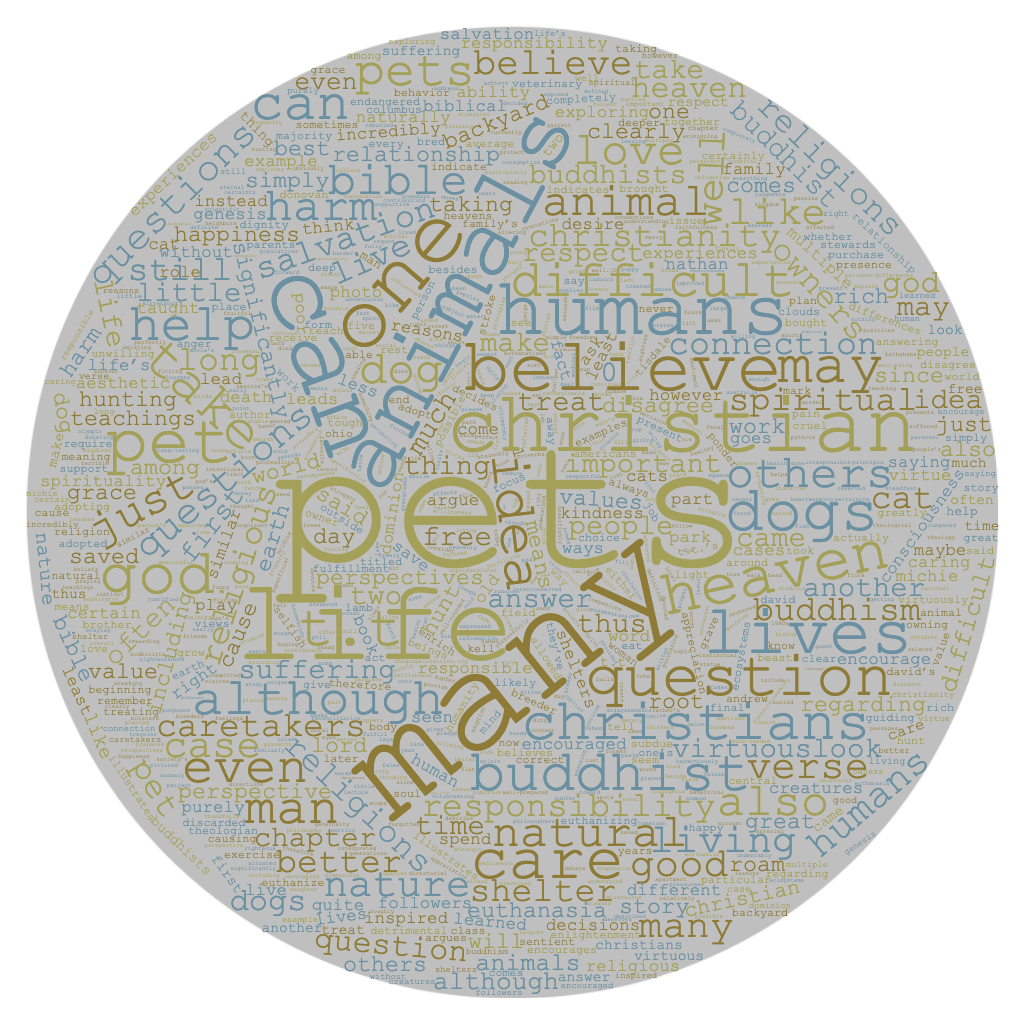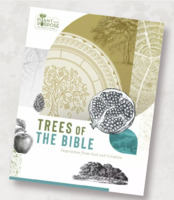Search
5 items
-
The Case for Animal Spirituality - Part 1: Conceptual Challenges, Methodological Considerations, and the Question of Animal Consciousness
This article, written by Paul Cunningham, explores the case for nonhuman animal spirituality. Spirituality goes beyond language, reflective consciousness, or conceptual thought. Animal spirituality and participation in religious phenomena are growing areas of research at the intersection of animal studies and religious studies, this article is a small but emerging discussion of this subfield. -
The Place of Pets in Our Lives: Some Christian and Buddhist Perspectives
This chapter from the student-written book “Emerging Perspectives on Religion and Environmental Values in America” explores the impact of animals and pets on our environmental values. The author discusses their own experiences with pets as well as religious texts and perspectives as they relate to animals. Below is the first paragraph of the chapter to introduce the discussion.
"If you ask a person to tell you about their favorite pet they’ve had, no matter how long it has been since it lived, their faces will most likely light up with joy as they tell you a humorous or heartwarming story about 'the best cat' or 'the best dog in the world!' Love and appreciation for our pets seems to be a relatively universal trait that, for many of us, is also interconnected with our religious or moral values and feelings toward nature." -
Laudate Deum
"Eight years have passed since I published the Encyclical Letter Laudato Si’, when I wanted to share with all of you, my brothers and sisters of our suffering planet, my heartfelt concerns about the care of our common home. Yet, with the passage of time, I have realized that our responses have not been adequate, while the world in which we live is collapsing and may be nearing the breaking point. In addition to this possibility, it is indubitable that the impact of climate change will increasingly prejudice the lives and families of many persons. We will feel its effects in the areas of healthcare, sources of employment, access to resources, housing, forced migrations, etc.
This is a global social issue and one intimately related to the dignity of human life. The Bishops of the United States have expressed very well this social meaning of our concern about climate change, which goes beyond a merely ecological approach, because 'our care for one another and our care for the earth are intimately bound together. Climate change is one of the principal challenges facing society and the global community. The effects of climate change are borne by the most vulnerable people, whether at home or around the world'. In a few words, the Bishops assembled for the Synod for Amazonia said the same thing: 'Attacks on nature have consequences for people’s lives'. And to express bluntly that this is no longer a secondary or ideological question, but a drama that harms us all, the African bishops stated that climate change makes manifest 'a tragic and striking example of structural sin'.
The reflection and information that we can gather from these past eight years allow us to clarify and complete what we were able to state some time ago. For this reason, and because the situation is now even more pressing, I have wished to share these pages with you." -
Trees of the Bible
"What does the Bible have to say about trees?
A lot, actually. In this guide, we explore nine trees of significance in Scripture to better understand the context of the passages and our relationship with the Creator (of trees and people)." -
El Niño caused the greatest ever mass extinction
This article describes new updated research that shows the weather event El Niño has led to the worst mass extinction. El Niño causes the ocean to become warmer all leading back to climate change. Marine ecosystems and terrestrials are suffering greatly because of volcanic eruptions occurring. Mass extinctions are very damaging and mess up multiple ecosystems causing more destructiveness than we realize.





